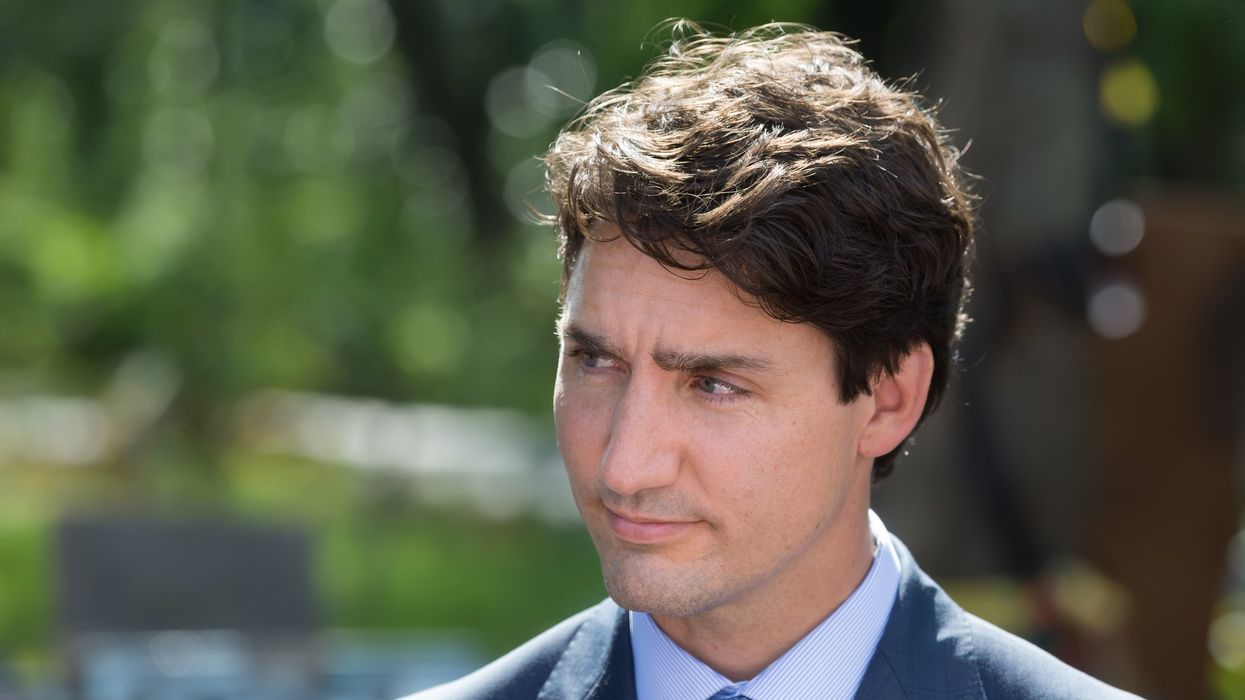Here's what happens next now that Justin Trudeau has announced his resignation
He's still PM for now.

Prime Minister Justin Trudeau is set to address reporters outside Rideau Cottage at 10:45 a.m. Monday.
Justin Trudeau has resigned as prime minister and leader of the Liberal Party of Canada, and Canadians have a lot of questions.
Trudeau announced his resignation in a press conference outside Rideau Cottage on Monday morning, stating that "Canadians deserve a real choice in the next election."
Pressure on the Canadian PM to step down has been mounting recently, fuelled by political turmoil, dipping approval ratings and a growing cost-of-living crisis. The Globe and Mail reported on Sunday that sources said Trudeau would resign this week ahead of a caucus meeting on Wednesday.
But what does Trudeau's resignation mean for Canada? And who will step up to lead the Liberals? Let's break it down.
What happens after Trudeau resigns?
In his press conference on Monday, Trudeau said that he would step down as Liberal Party leader and prime minister "after the party selects its next leader through a robust nationwide competitive process."
"Last night, I asked the president of the Liberal Party to begin that process," the PM confirmed.
According to the Liberal Party's constitution, in the event of a leadership contest, the party's national executive must meet within 27 days to set the rules. This could delay picking a permanent leader for months, which would get complicated if there's a sudden election.
Trudeau also announced that the governor general had granted his request to prorogue Parliament until March 24, to give his party time to hold a leadership contest.
What is proroguing Parliament?
Proroguing Parliament is basically hitting the pause button on all legislative business in Canada. When Parliament is prorogued, everything comes to a halt — any bills that haven't been finalized are scrapped, committees stop meeting and no new debates or votes can happen.
Most importantly for the Liberals, though, the current government stays in power during this time — meaning the opposition can't call a non-confidence vote to trigger an election, giving the Liberals a bit of time to find Trudeau's replacement.
When asked why he made the decision to prorogue, Trudeau said that Parliament had been "entirely seized" by "a total lack of productivity over the past few months."
"It's time for a reset," he said. "It's time for the temperature to come down, for people to have a fresh start in Parliament to be able to navigate through these complex times, both domestically and internationally."
Who could replace Trudeau?
While there's no official word on who's in the running yet, a few names are already being tossed around, including former central banker Mark Carney, who's seen as a heavy hitter thanks to his financial expertise.
Chrystia Freeland, the former finance minister and deputy prime minister who resigned last month in an explosive open letter to Trudeau, is also a top contender.
Then there's current Finance Minister Dominic LeBlanc, whom the Globe reports has already been in discussions with Trudeau about stepping in as interim leader.
Whoever gets the top job next, the stakes are high. The next leader won't just be inheriting Trudeau's role — they'll also be gearing up for a federal election in 2025.
Why is Trudeau resigning?
It's been a tough few years for the prime minister. From internal party dissent to public backlash over inflation and housing affordability, Trudeau's popularity has taken a hit. High-profile exits, like Freeland's resignation last month, have only added fuel to the fire.
Even his relationship with the NDP, a key ally in his minority government, has soured. NDP leader Jagmeet Singh recently joined the growing list of politicians from all sides of the aisle calling for Trudeau's resignation and stated the party's intent to call a non-confidence vote early this year.
Meanwhile, recent polls show that under Trudeau, Liberal support has slipped to 20%, while the Conservatives are sitting comfortably at 44%.
This article has been updated.